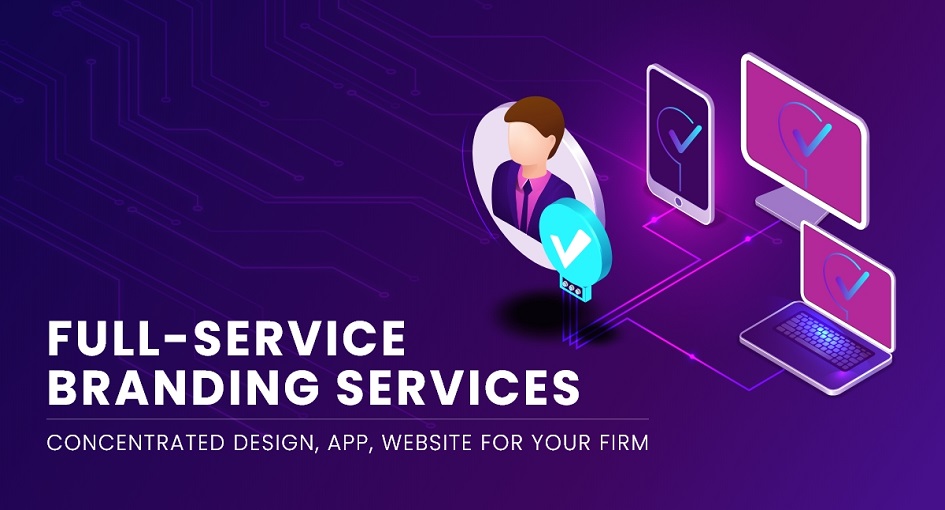
The importance of branding services is crucial and imperative in today’s corporate environment, characterized by intense rivalry and a plethora of options for consumers. Establishing a strong brand is incumbent on every business, be it a startup trying to make an impression on the market or an established company trying to stay relevant. We explore the underlying ideas, tactics, and critical role branding services play in creating brand perceptions, cultivating client loyalty, and propelling corporate success in this essay that delves into the complex world of branding agencies.
In today’s fast-paced, highly competitive industry with an abundance of customer options, brand development agencies have become indispensable to every successful business. Branding solutions encompass much more than simply a logo or memorable tagline; they represent the art and science of influencing viewer perception, building brand loyalty, and developing deep relationships with target audiences. Fundamentally, branding is an attempt to strategically create a unique personality that appeals to customers by expressing a company’s identity, beliefs, and goals.
A HubSpot survey reveals that 77% of marketers consider branding crucial for growth, emphasizing its role in market presence and differentiation. The shift towards digital platforms has increased demand for digital branding services, focusing on online presence enhancement, user experience optimization, and digital marketing channels.
Through an examination of its foundational ideas, strategic imperatives, and transformational impact in promoting corporate development and distinction, we will explore the complex world of branding solutions in this introductory inquiry.
Due to changes in customer behavior, developing market trends, and technological improvements, branding solutions have seen substantial evolution during the last ten years. With the advent of digital platforms, businesses can now interact with their audience in a more customized and immersive way through a variety of touchpoints. Social media has become a potent instrument for creating brands because it allows for influencer partnerships, real-time communication, and consumer feedback. Furthermore, purpose-driven branding—in which businesses match their beliefs with those of their customers—has become more popular as a result of the increased focus on sustainability, authenticity, and social responsibility. In general, over the past 20 years, branding agencies have evolved to better meet the changing demands and expectations of contemporary customers by being more dynamic, data-driven, and customer-centric.
Fundamentally, branding is the art and science of creating a unique identity for a good, service, or organization, and even for branding services for startups. Included are any and all visual elements, messaging, experiences, values, and touchpoints that a business employs to interact with its target audience. Branding agencies therefore relate to the variety of creative and strategic endeavors intended to forge, develop, and fortify this identity.
A company’s identity, values, and communications must be strategically synchronized to define branding services solutions that give a distinctive and compelling brand presence in a reasonable branding services pricing. This art that encourages innovation, loyalty, and trust in a crowded market includes telling stories, choosing experiences, and producing visual elements that resonate with target consumers. Companies may leave a lasting impression and evoke powerful emotions by using branding solutions and website branding services.
For companies looking to make a big impression on the market and create enduring connections with clients, brand management services have a lot to offer. Among the advantages:
With consumer behavior and technology improving at an accelerating rate, the industry is going to continue to change, and branding strategy will be no exception. To tailor client experiences at scale and promote stronger bonds and loyalty, companies will progressively use AI and machine learning in the upcoming years. Consumer demands for accountability and openness mean that sustainability and ethical business practices will become essential elements of brand identification. Additionally, partnerships between creators and businesses will grow, promoting originality and genuineness in brand narratives. Using these trends and technology to create stories and branding services examples that are interesting and appealing to a wide range of ethically aware people throughout the world is ultimately where Brand positioning will find its future.
AI for individualized customer experiences and AR/VR for immersive interactions will be the hallmarks of the future of branding services. Ethics and sustainability will be key components and brand credibility will depend on openness and responsibility. A novel narrative that emphasizes genuineness and community involvement will be fueled by partnerships between businesses and creators. Agile techniques that work in a variety of international markets will be necessary as the digital world continues to change. In general, to build memorable brand experiences and meaningful relationships in a world that is becoming more networked, brand management will need to make use of cutting-edge technology and ethical frameworks.
Conclusion: As consumer behaviors evolve, technology advances, and new market trends emerge, branding agencies will play a larger role in business. Corporate social responsibility, sustainability, and inclusion will become increasingly important, while augmented reality, artificial intelligence, and data analytics will provide tailored brand experiences. Branding services go beyond creating catchphrases and logos; they involve developing emotionally charged stories that influence perceptions and appeal to customers’ hearts and minds. Strong branding is crucial for company success, as it helps build long-lasting advocacy, goodwill, and loyalty, rather than just transactional connections.